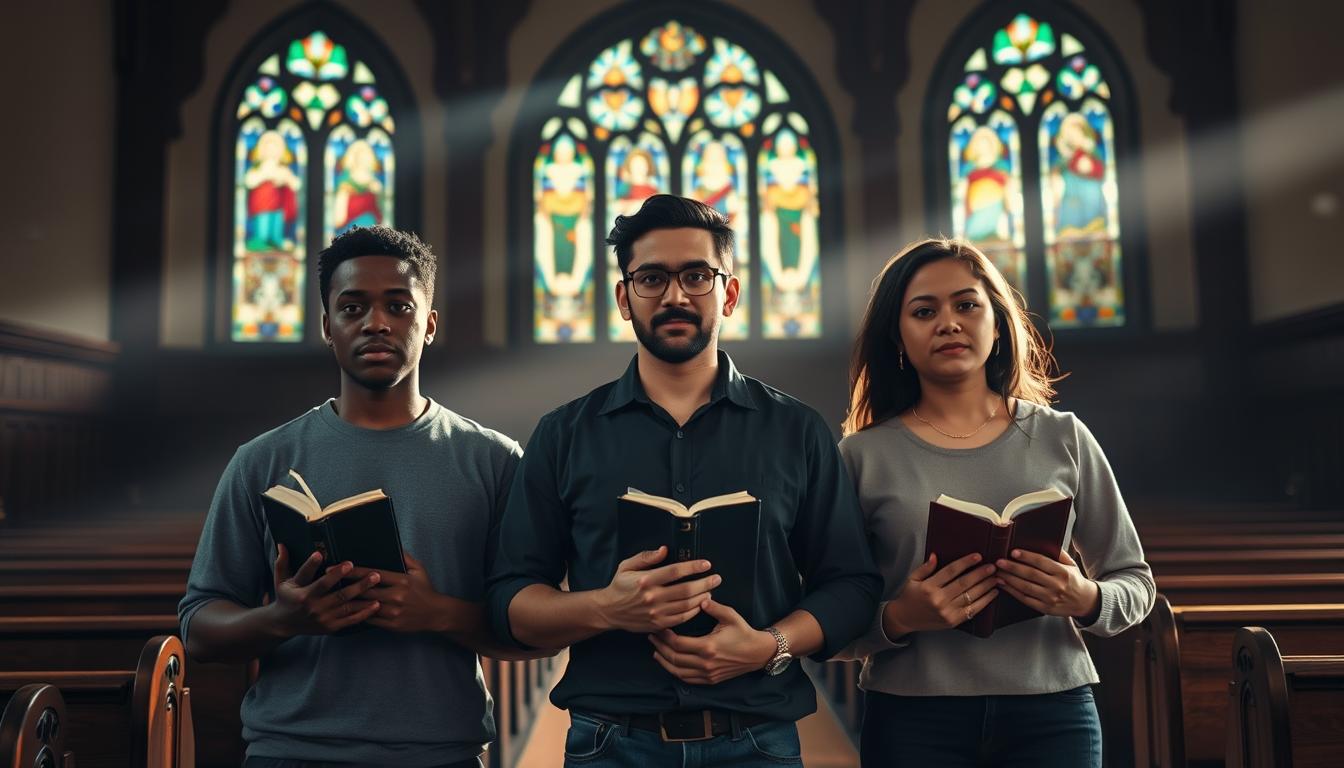Have you ever wondered how truth and tolerance can coexist in today’s society, especially when “wokeness” seems to challenge the core tenets of Christianity? In the turbulent seas of cultural shifts, we see social justice and woke ideology clash with our Christian values. We stand at a critical junction. These modern values have gained ground in the last five years. They make us question our duty to uphold truth in a society that views biblical truths as intolerant. Can we hold onto our faith while being culturally tolerant?
Canada’s Bill C-4 and Bill C-11 have reshaped how we can talk about and live our faith. These laws limit Christian counselors and might hinder sharing the Gospel online. They show a shift towards secular morality that opposes God’s laws. We now realize the urgency of standing up for our faith-based values more than ever.
All laws are based on moral views, meaning no law is without moral impact. The idea that “you cannot legislate morality” is wrong. It forces us to rethink the supposed neutrality of our culture. Culture mirrors our deepest values. No part of our life together avoids religious implications. Reflecting on historical movements shows this. Without the guidance of biblical law, the Gospel’s spread is hindered, and moral uncertainty grows. This leads to more people, especially young ones, facing mental health struggles.
Our current era emphasizes personal morals to the extreme, highlighting the need for a solid truth. Churches are now leaning towards messages that ensure societal approval rather than sticking to Scripture. This approach begs the question: How can we address woke ideologies without giving up our faith’s core of radical change and sacrifice?
The Rise of Woke Culture and Its Impact on Christian Values
As we discuss the rise of woke culture, it’s key to understand its big effect on Christian values. ‘Woke’ started in the 1940s within African American communities, meaning being aware of social injustices. Today, it has grown to cover more areas of social awareness. This includes politics, economics, and LGBTQ acceptance, shaking up society’s norms and values. Thoughts from figures like Karl Marx, Friedrich Nietzsche, and Sigmund Freud have made this cultural shift even more complex. Marx’s idea that society is split between oppressors and the oppressed and Nietzsche’s belief that “God is dead” go against Christian principles. Also, Freud’s focus on sexuality and the mind’s deep thoughts pushes us toward denying absolute truths, which Christianity is built on.
Nowadays, woke culture often doesn’t match with Christian beliefs. It brings up tough issues for those trying to follow the Bible in a world favoring personal truth and identity. This can be seen in schools, businesses, and even churches that adopt social justice themes. Some well-known Christian figures are trying to find a middle ground with these modern views. This new situation calls for sharp spiritual discernment. Believers face many new ideas that could weaken the gospel’s message. The apostle Paul talked about fighting against such challenges in 2 Corinthians 10:5. Christians need to carefully examine and react to these changes, using the Bible as their guide. This ensures their beliefs stay true to God’s teachings, helping guide their moral choices.
The growing acceptance of woke ideas in churches poses another test. This includes views on roles in the church and family that disagree with traditional teachings. This is a crucial time for the Church. It needs to tackle these topics firmly, focusing again on the teachings of Christ. It’s about mixing culture with grace and truth. As this conversation goes on, think about how woke culture has changed your views on justice, equality, and truth. Consider how you can deal with these topics in a way that honors God’s word. And how to love and serve everyone around you.
Understanding the Foundations: What Does the Bible Say?
We hold the Bible close to our hearts as our guide. It shines light on Christian doctrine and gives us spiritual guidance today. With topics like gay marriage, especially after the Supreme Court’s decision in 2015, we must look back to our biblical worldview. Scriptures like 2 Timothy 3 talk about “perilous times” that feel real today. Our traditional views on marriage and morals are being questioned. In fact, 60% of evangelical leaders worry about how traditional marriage is seen, as shown in a 2016 poll.
The Bible isn’t just an old book; it’s a way to connect with God’s wisdom. It helps us compare modern times with timeless scriptural truth. For example, 70% of Americans think religious freedom is at risk today. This shows we need Bible-based responses that are caring and well-informed.
Topics like religious freedom and serving others based on our beliefs are important. About 75% of Americans back this idea. The Bible tells us how to love, be just, and live as a community. It offers help and advice for those feeling left out or misunderstood because of their beliefs.
- Jesus tells us to follow him, not the world, as he says in John 8:44.
- We’re reminded to question ideas like secularism that can go against God’s moral rules.
- Even though our experiences matter, they shouldn’t overshadow the scriptural truth the Bible teaches.
In times of much cultural and moral discussion, the Bible helps us stand firm in truth. It helps us deal with today’s society with understanding, patience, and grace. Our faith, rooted in Christian doctrine, encourages and supports us through these challenges.

Can Christians Defend Biblical Values in a Woke Society?
As Christians, we must do more than just believe. We need to actively engage with the world around us. In today’s society, where woke ideas are common, defending our faith and culturally participating are crucial. They are essential parts of being a Christian.
The Bible, in Matthew 12:30, challenges us to see the world through a lens of biblical truth. This encourages us to remain true to our beliefs, even when society’s views differ. It’s about standing strong in what we believe, even when popular ideas clash with our faith.
- Terms like “wokeness” and “Social Justice” show a shift in society that often questions traditional Christian beliefs about right and wrong.
- Changes in laws, like Canada’s Bill C-4, limit our ability to discuss and express Christian views on topics such as sexuality and freedom.
- Looking back at events like the Great Awakenings, we’re reminded that Christians can bring about change by basing our actions on God’s laws.
We must work to create places where the gospel can grow. This means getting involved in the legal and cultural issues that shape our society. We can’t just watch from the sidelines; we have to play an active role in making society more just and biblical.
Being active in today’s world means questioning any cultural rule that goes against God’s teachings. By sticking to the Bible and staying committed to our duty as Christians, we can be sources of truth and love. This is how we advocate for a society that reflects God’s fairness and goodness. Through these actions, our faith gets stronger and we leave a lasting mark of faithfulness despite today’s challenges.
To sail through these tricky cultural waters, we need wisdom, discernment, and bravery. These are gifts from God, made sharper through constant engagement with His Word and His world.
Case Studies: Christians Responding to Woke Culture
In recent years, Christian responses to woke culture have varied widely. These examples show faith in action amid discussions on culture and society. We share real-life examples of how people of religious conviction tackle today’s cultural stories.
One key example is Christians reacting to corporate diversity programs. For instance, many companies and schools now have sessions on themes Chris Rufo talks about. These include ideas about racial benefits and oppression. Christians have set up forums to explore these topics using the Bible’s view, focusing on the value and equality of all humans.
A cultural analysis of these programs shows they often stray from Judeo-Christian values. These values highlight everyone’s inherent worth, regardless of identity. By holding discussions, these groups act on their faith. They offer a biblical outlook on today’s social issues, fostering unity and understanding.
Another case is how Christians respond to media’s depiction of gender and sexuality. For instance, the Blue’s Clues’ Pride Month episode sparked discussions. It made Christians consider how to discuss gender with kindness and insight, rooted in biblical truths.
- Workshops for parents and teachers on discussing these issues with kids have been crucial. They provide a way to share religious convictions respectfully and thoughtfully, connecting biblical teachings with present-day questions.
- Moreover, focusing on community involvement gives Christians real ways to practice their faith. They can have open, caring talks that honor both their beliefs and the complexities of society today.
These examples highlight how Christians can keep their spiritual values while thoughtfully engaging with a range of cultural challenges. By dealing with these topics with dedication to the Bible and a commitment to outreach, they show what it means to love others while staying true to their beliefs.
Practical Steps for Defending Faith and Values
We’re in tough times, where it’s key to defend Christianity and keep our traditional values strong. With 70% of Americans calling themselves Christians, but only a few really living it, the need to be active in our faith is huge. By being compassionate and understanding, we show how deep our commitment to Biblical truths is.
In today’s world, 63% feel that family values are at risk. So, how do we, as Christ’s followers, strengthen our faith? Here are some steps to follow:
- Root Ourselves in Scripture: According to 1 Peter 3:15, we must always be ready to explain our hope to anyone who asks. This means studying the Bible regularly so our beliefs and how we respond to society are shaped by it.
- Engage Wisely in Conversations: Colossians 4:6 tells us to talk in a way that’s full of grace and interesting. By being thoughtful about how we speak, we can have open yet respectful talks, even with those who disagree with us.
- Participate in the Community: Getting involved in community events and discussions helps us understand more and have a bigger impact. Doing things like voting wisely or supporting policies that match Biblical values helps us push for a better society.
- Embrace Apologetics: With 55% of Christians feeling unprepared to talk about their faith, it’s important to learn about Christian apologetics. This knowledge helps us share our beliefs confidently and kindly.
- Prayer and Reflection: For 80% of Christians, prayer is the main way we ask for God’s guidance and strength to protect what’s important to us.
By following these steps daily, we do more than defend Christianity. We also show our dedication to living an active, faith-filled life. Every action, inspired by scriptural truth and this guidance, gives us the strength we need for today’s challenges.
Conclusion
In our journey, we see how vital Christian perseverance and cultural discernment are today. Keeping faith integrity means engaging the world with kindness and transformation. This journey is guided by the love of God and our neighbors, rooted in the Gospel’s truths. In facing new ethical issues or changes in how we see old institutions, our dedication to biblical advocacy stands firm.
Today’s Christians tackle tough social issues, bioethics, and justice questions. Our answers stem from Scripture, focusing on virtue, compassion, and strength. By staying strong in faith, as many have before us, we can deal with today’s challenges. Our commitment at Impact Family Counseling is to support your spiritual journey. We aim to grow a Christian viewpoint that meets secular tests. By using Christ’s lessons in every aspect of life, we become stronger together.
We hope to build a community rich in compassion, understanding, and faith-healing power. Join us in living a faithful, impactful life.

